|
Reflection: Our Reflection this week comes to us from Rev. John Dacey (Chaplain at Macquarie Uni) 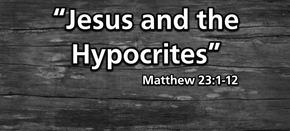 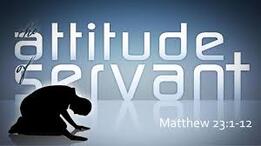 After a tense conversation with the Scribes and Pharisees, Jesus is talking to his crowd, conveying to them just how hypocritical the Scribes and Pharisees are, in vs.1-5. In vs. 6-7, Jesus also criticises them for lording it over others, abusing the power of their position. But at v.8, still talking to the crowd, Jesus’ tone of voice changes – he shifts his focus to the (potential?) hypocrisy of the crowd itself. He does this because of the human tendency to blame others and not recognise our own complicity in a problem or injustice. We tend to be blind to our own hypocrisy. Jesus was pointing out that the crowd and his own followers should not participate in this propensity for lording it over others. We can easily fall into doing the very thing we criticise others for doing. But what about the prohibition of calling people ‘Father’ or ‘Teacher’? Is this just Jewish hyperbole (exaggeration), or is there something more to it? Understanding Jesus’ intention here requires understanding that, in ancient times, titles and labels had much more meaning and power than they do today. Though, even today, titles still can carry a sense of superiority. The clue to Jesus’ intention is in his words: “yet all of you are brothers (and sisters).”(v.8) The patriarchal language of his day notwithstanding, Jesus’ concern is for equality, fraternity, egalitarianism, but titles such as Rabbi and Father tended to prohibit that in his day. Power was vested in a title. Titles can have their place, but not to convey superiority. They can convey a role or position, but superiority is not intrinsic to the said role or title. Jesus follows his statement that all are brothers and sisters with statements that are clearly aimed at challenging expectations of power associated with title and position: “the greatest of you will be your servant.” And “whoever will exalt himself will be humbled and whoever will humble himself will be exalted.” Jesus is seeking the recognition of all people as equally valued and valuable, and that any titles do not imply either superiority or inferiority. But what replaces titles and the superiority they attract? Jesus gives a hint in his words: Service & humility are key to what replaces superiority. I regularly hear people lament the loss of respect in society. Especially things like, “Young people – they’ve got no respect anymore.” Or “nobody respects the elderly, … the police, … the church, … teachers, … (insert name of group who traditionally had power) anymore.” And I tend to agree; but I think it’s a good thing. Why? Because society is in a time of transition (and unfortunately transitions feel chaotic and uncomfortable). We are slowly doing away with the old titles of superiority and the power and respect that went with them. But we haven’t yet fully replaced respect based on superiority with what Jesus was suggesting: respect based on shared humanity and the intrinsic value of all. We have begun, but it’ll take more time before the process is complete. And like most change that is worthwhile – it’ll get worse before it gets better. Beyond the social implications of Jesus’ call for greater equality there are theological implications, too. For around 30 years, I’ve bristled at the idea of calling God ‘Father’, not primarily because of feminism or inclusive language, nor due to not having a positive father role model in my life, but because I didn’t like the idea of being a ‘child’ of God. I wanted, and still want to think of myself as grown up, mature, an ‘adult’ of God, if you like. I know we are all still children of our parents, even when we are adults, but, with my own children, who are now adults, I more highly value the equal ‘partner’ or friend relationship I have with them now, than any sense that they are my children. Similarly, I see myself as a ‘partner’ with God, a friend of God, not a child of God. Theologian Don Cupitt says “It is preposterous that our daily practices in prayer and worship should so flagrantly contradict the concern for human dignity and freedom that church leaders sincerely profess …” And “The fact is that if modern humanitarian Christianity is ever to become established and to assert itself consistently, then it must sooner or later purge itself of cosmic feudalism.” Kingdom Come in Everyday Speech (SCM Press, 2000. p.109) By ‘cosmic feudalism’, Cupitt means the language and symbols of ‘king’ and ‘lord’ (and ‘kingdom’ and ‘dominion’) as commonly ascribed and attributed to God and Jesus. If we want to join with Jesus’ desire for more equal societies, and we want the church to be taken seriously in advocating for them, then our God language and our practices of prayer and worship need to reflect our desire for the world to be a place of equality, reciprocity and mutuality. I know this is a big call because it targets some ‘sacred cows’, if I can call them that, of the Christian tradition – the Lord’s Prayer or Our Father, to name one. But Jesus’ prayer recorded in Mtt. 6 & Lk. 11 was descriptive, not prescriptive; his disciples asked Jesus, ‘teach us to pray’ not ‘teach us a prayer’. I hear you ask: ‘Jesus refers to God as Father, so why shouldn’t we?’ Well, Jesus was stretching his audience a long way out of their comfort zone by referring to God as ‘Father’. It would have been a ‘bridge too far’ for him to call God, ‘Friend’ or ‘Partner’. Remember, Jews didn’t even vocalise their descriptive name for God, YHWH. They used generic terms Adonai (Lord) & Elohim (God), so calling God ‘Father’ was a stretch; calling God ‘friend’ would have been too much. 2000 years on, might we not follow Jesus’ intent rather than idolize his words and, while we’re relating to each other as equals, try some ‘egalitarian’ titles for God – Friend, Partner, ‘Maaaate’, Companion, Ally, or ‘I Am who I Am’ – remembering that all names for God fall short of the mark? Jesus’ was very critical of the scribes and Pharisees because of the abuses they perpetrated in God’s name, but he was equally challenging to the ordinary people who were the victims of their abuse. He knew, like Gandhi, that even victims had to change their ways in order to not cooperate with abuse so that the total system of imbalance and injustice would come crashing down. This is what is needed to bring about God’s beloved community, as ML King Jr called ‘God’s reign’, here on earth. Amen Currently I’m the UCA Chaplain at Macquarie University, which I can tell you is a far from egalitarian place, with titles such as Vice Chancellor, professor and the like, carrying an awful lot of prestige. Against that reality, the socialist student groups rally weekly to protest cuts to funding and courses as well as other injustices; but they rarely garner much support from a student population which either don’t care a great deal, or more likely, don’t care for the kind of protest the socialist students get up to. In my first weeks on campus, I surreptitiously joined such a protest and I didn’t like it. While religious student groups and chaplains wouldn’t normally be seen within ‘coo-ee’ of such a protest, I wanted to join in solidarity – my concerns echoing those of the socialists, though stopping short of calling the Vice Chancellor names! So, as a chaplain, I found myself in a kind of no-man’s land – not fitting in with the conservative Christian and other religious groups, but not sharing the tactics of the activists despite sharing some of their concerns. Thinking that perhaps I share more in common with the bulk of the rest of the student community than I, and they, realise, I set out to discover how to ‘leverage’ some of the common ground. I realised the UCA Chaplaincy needed innovating, apart from COVID-19 impacts. I’ve been surveying students about what they want out of their time at uni besides their academic degrees, i.e. their non-academic aspirations. The results indicate a strong desire for good friends (84%) and quality experiences (76%), to learn communication (85%) and motivational (75%) life-skills, to have a mentor (75%, compared to 25% wanting a life coach or personal trainer), and opportunities to ‘give back’ to society (85%). Even 50% said they want “opportunities to reflect, with others, on your experiences to explore values, meaning, purpose and nurture of the soul.” There is plenty ‘common ground’ there for the UCA Chaplaincy to deliver both the church’s and Christian faith’s purpose, and provide students with what they desire. First ‘cab off the rank’ will be a student mentoring program for which I’ll be recruiting and training mentors from UCA churches from across the SCC Presbytery. Will you join me in being a positive influence in a student’s life? John
1 Comment
Reflection: "Are we there yet?" What a difference a few days can make! (especially to facial hair). I certainly appreciated my time on annual leave, but now that I’m back into it, I’m wondering just what “it” is. As most of you know, we’ve been unable to hold our regular church services at Lane Cove for over 30 weeks and it seems like the end point of this COVID-19 virus is still a long way off. So, in some ways, it’s like you’re on leave, too, as we can’t meet face to face and have to rely on these written communications or online/TV services from larger churches. I hope you’re enjoying the change. Rest assured that your Church Council is continuing to meet over this time and are continuing to look at alternative ways to hold church in Lane Cove. We’ll be sure to keep you informed of any changes. This week’s Lectionary readings look at some interesting passages and I encourage you to read them all. I’m basing my Reflection this week on the passage from Matthew 22, where Jesus has another of his encounters with the Jewish religious leaders. To say that these people weren’t the biggest fans of Jesus, is an understatement. They saw him as a threat to their control over the people. In earlier verses, we hear about a testing time that Jesus had in Jerusalem, just prior to his crucifixion. The religious leaders had heard all about Jesus and his popularity with the people and they were worried that he might try to usurp their authority and put them out of business. They plotted various ways to get him out of their hair, including killing him, but they were afraid that he was too popular with the people and they might revolt against the leaders, if they killed him, so instead, they devised a plan to discredit him in front of the people, hoping that would be enough to get him to leave Jerusalem and go back to Nazareth, with his tail between his legs. In the last part of today’s reading from Matthew 22, Jesus even turns the tables on the Pharisees, who were the ones who were supposed to know everything about the Jewish Law and the scriptures, by asking them whose son they thought the Christ was. They answered him by saying “David”, because it was written that the Messiah would come from the house and line of David. He reminded them that even David had called the Christ “LORD”, so how could it be that the Messiah was his son? That stumped them and so they stopped asking him questions - and decided to go to plan B, which, as we all know, was to get the Romans to kill him for them. No blood on their hands! During his discourse with the religious leaders and the people, Jesus cites Deuteronomy 6:5, part of one of the most important passages of the Old Testament, which demands that we love God with our whole being. He also cites Leviticus 19:18. This passage requires that we also love our neighbour. To Jesus, the whole of the Scriptures can be reduced to these two precepts. Jesus reminds his listeners – and that includes us, 2,000 years later – that of all the 10 commandments, the greatest and first commandment is “You shall love the Lord your God with all your heart, and with all your soul, and with all your mind” and that the second-most important one is “You shall love your neighbour as yourself.” Well, I think most of us can do the first part that Jesus talked about, pretty well. You know, the bit about loving God. We usually slip a bit on the “with all your heart and with all your soul” part. However, I think most of us are trying to make a fist of that bit, too, but it’s in the second one that most of us fall down. You know, the “love your neighbour as yourself” part. I don’t know about you, but I find it pretty easy, most of the time, to love my family, both blood and church relations, and I can make allowances for their little foibles and, gracefully, say that I forgive them when they annoy me. After all, I probably annoy them a lot more! But what about for those outside of our closest relationships.What about the hungry, the thirsty, the strangers, those with no clothes to wear, the sick, the criminals. Do you remember reading about them in Matthew 25? Do we love them? Do we even think about them very often? Let me give you an example: At a service at Turramurra Uniting, we heard that the congregation have signed up with UnitingWorld to partner with the church in North India, assisting them in educating the locals about the dangers of slave traders. What’s that you say. Slave traders? Didn’t William Wilberforce and his cronies abolish slavery over 100 years ago? Well, that may be true, but the slave trade’s now a bigger business than it ever was. It’s reported to have had revenues of over $30 BILLION US dollars last year. Their tactics these days are different to the ones used in African slavery in the 1800’s. Now, young children are lured away from their families by the promise of a job in a faraway city or country and the prospect of sending money home to those impoverished ones left behind. These victims are mostly from poor areas, where they are surviving on about $1 per day, usually earned by doing a long day of manual labour. When you consider that we put a figure of $2 per day as being the poverty line, you can see that these people are desperate. People from the far north of India, neighbouring Nepal and similar areas, are in high demand because of their fair skin. The unscrupulous slave traders, who just see them as another commodity to buy and sell, give their parents some money and promise to find them a job, often as a domestic help, somewhere down south. They usually end up in a brothel, in another country, without their passports and are told that they have to work to repay the debt. A representative from UnitingWorld told a couple of stories that the congregation found quite disturbing and, frankly, difficult to believe. Not because we didn’t believe her, or that the events actually happened, but just that we wondered how one human being could do such things to another. She told of one particular young girl who was collected from her home by a family, who promised to employ her as a domestic helper. They took her to southern India where doctors removed one of her kidneys and implanted it in the family’s mother, before leaving her in a brothel. And of another young girl who was sent overseas where she was forced to service up to 40 men per day. Think of it. A man every 15 minutes for 10 hours a day. Every day. Turramurra is now assisting the church of North India in a number of ways, including prayer, the raising of funds and even sending teams of volunteers on short-term mission trips to work in the area. It may seem like a drop in the ocean to some, but to a young child, who’s saved from a life of misery, it’s everything. We recognise that we also need to educate western cultures, because we’re the ones who are often the customers. It comes down to simple Keynesian economics. If the demand dries up (meaning we don’t utilise slaves labour), so does the business and the need to supply young people is, therefore, also reduced. I encourage you, over the time that we’re not physically together, to think about what you, individually, or we, as a church community, can do to love our neighbours, our fellow man, more and thereby make God pleased with our understanding of his commandments for us. Blessings…………..Pastor Rick Merciful God, we ask that you help us to live lives that bring honour to you and always put you first. Sometimes, we just let life overwhelm us and we get it all wrong.And so we come seeking forgiveness and renewal.Have mercy on us, O Lord. Amen.
In the gospel reading today, Mathew 22: 15-22, the Pharisees sent their disciples to Jesus hoping to trap him and place him at perilous odds with either the oppressing might of the Roman empire, or the priests of the holy temple of the Lord, or preferably both. They maliciously presented Jesus with a difficult choice that he disarmed with great wisdom, “Give … to the emperor that which is the emperor’s and to God the things that are God’s.” with the implied warning, “Be careful who you choose and what priority you place on each.” StreetWork’s youth workers often meet young people who have made bad choices, and some who struggle to make good choices, such are their difficult circumstances. Bec* is 15 and had made a bad choice. She was referred to StreetWork after she was caught stealing at Myer in Chatswood and needed a support person to attend her youth justice conference. An outcome of the conference was that Bec would attend 3 sessions with a StreetWork mentor. Bec connected well with her mentor, Lucy and decided to continue with the KickStart mentoring program after the 3 mandatory sessions. Lucy said, “As Bec’s caseworker I empowered her to make choices that were going to steer her away from risky behaviour like stealing. Bec and I share a similar perspective on the world. Our conversations about life strengthened our connection and allowed Bec to place her trust in me knowing we had similar values. I am so proud of her motivation!” Since meeting Lucy, Bec has earned her learner driver’s license and started her Certificate III in Music (Performance) at TAFE, reengaging with education that she had dropped out of. Through mentoring, Bec is learning to make healthy, sustainable choices. This year, the COVID virus brought many new challenges to the way StreetWork supports young people who need help. The team has had to adapt, using technology in new ways like meeting young people one-on-one using video calls instead of in person. We mainly use the WhatsApp application that most young people have on their mobile phones. They have also used WhatsApp to connect young people with agencies like Headspace which specialises in youth mental health. Some agencies saw the way StreetWork was using technology and asked us to help them do the same. Despite COVID, StreetWork continues to work with young people and provide mentoring that is tailored to the needs of each individual and help them turn their lives around, making significant and often difficult choices along the way. Mark is 16 and has a difficult family situation. Terry has been supporting him since last year as he addresses abuse of alcohol and drugs, some risky social relationships and his inconsistent school attendance. Terry helped Mark set some significant goals for himself that were not going to be easy, including reducing smoking and drug use, completing Year 10, and transitioning to employment afterwards. Terry saw that Mark has some learning difficulties and helped him decide to be tested for dyslexia. Mark and Terry have had many conversations, meeting weekly and often chatting via text messages in between as Mark decided that he wanted to finish school, worked through his anxiety about dyslexia testing, and started to reflect positively on the benefits work would have for his future. Mark booked his own appointments with an Alcohol and Other Drugs youth counselling service Terry referred him to, which was a big step. Since then, Mark has finished Year 10 and found a full-time job that he enjoys. Terry is continuing to support him. The challenge for StreetWork right now is that more young people like Bec and Mark are being referred than ever before, particularly by government agencies and our youth workers are at full capacity, with a waiting list of over 50 young people. If you would like to help, donations can be made through StreetWork’s web site at www.streetwork.org.au or by phoning (02) 9419 7559. All of us make choices, and we often need people we can trust to help us make good choices, perhaps by challenging our thinking or letting us know about possibilities we had not even thought of. Such is the work of StreetWork’s mentors, based on trust, helping young people choose well. *All names have been changed for reasons of privacy. PRAYER OF INTERCESSION God of healing and mercy, hear the prayers of your people, true expressions of our hearts’ desire. We pray for the world, so broken by greed and enmity. We pray for the created order, that it might be renewed and restored according to your will. We pray for its nations and peoples. We long for peace in every land. We pray for the day when all people will be free, when racism, poverty, bigotry and hatred will be replaced with justice and goodness for all. We pray for your people – people of faith – asking that we may be bold to speak out against cruelty and eager to serve faithfully and with kindness. Strengthen your church and shape it according to the teachings of Jesus, that it might shine like a beacon of hope for all. And now, in this moment of silence, we lift before you all for whom we are personally concerned, praying for your blessing and healing, that hearts may be strengthened and lives renewed… Silent prayer To you be all glory and praise, O God. Amen.
Jesus’s parable of the wedding feast is more unsettling than reassuring. It challenges our assumptions about matters of earthly and eternal importance. My focus in this parable is how people answer the question, “Am I okay?” or in theological terms, “Am I justified?” If we talk about the wedding banquet as people’s salvation, the banquet would provide God’s answer to whether or not we are justified, or okay. God’s gift of salvation can answer the question of worth and belonging that plague so many people. How do we answer the “Am I okay?” question in our own lives, and are we willing to let God’s answer be enough? Or do we find ourselves needing to find our own human answers that keep us from being able to trust our inclusion in God’s wedding banquet? If God has invited people to the wedding banquet, they have already been offered their spot in the kingdom of heaven. So, the question is: Why would they reject it? Why would they give up salvation? To use the language of the parable, why would one pass up free food and drink? The answer lies in their responses: they either reject God and God’s message of mercy by killing the messengers (like the Jewish nation and many others have), or they have other things they are busy with. They have their jobs, their property; things they have built themselves, things they are using to define their worth in the world. This is so similar to our own confusion or conflation of vocation and justification. Our culture resonates deeply with Christopher Nolan’s ‘Batman’ when he says, “It’s what we do that defines us.” For many of us, our world creates jobs and family situations where our performance is deeply tied to our sense of worth. Many people in our culture want to be the best employees or best parents because that will dictate whether or not they are okay. For many people, we know that we are okay, that we are justified, because we have fought the good fight, done our duty, been a good person. In the parable, the king responds by turning our systems on their head. By sending out his troops to destroy the people and their “city,” the king is destroying our human notions that what we have done and built has value when it comes to the wedding banquet, the kingdom of heaven. Instead, the king invites everyone in the main streets: the good and the bad, the non-elite. No longer are we worried about the elite, the wealthy, or those who control society. Instead, God is declaring his acceptance of the marginalized. The text continues to add insult to injury, by throwing out those who show up at the wedding banquet who aren’t willing to be completely covered in God’s mercy, that is, the wedding gown. This signifies that for the writer of Matthew there is only one way to the wedding banquet: through Christ. To put on the wedding robe provided by the king is to put on the garments of Christ; when we come to the wedding feast, we are clothed like everyone else in mercy. If we refuse this mercy by instead relying on our own works or accomplishments, we stand in judgement. If we want to prove ourselves worthy, we will indeed feel the sting of “Many are called, but few are chosen.” Yet, if we remember that God’s grace is what saves us, we won’t worry about having to justify ourselves or who else God has decided to include in the Wedding Banquet. We will just be so grateful and joyful to be included and free to enjoy God’s abundant blessings at this most amazing and pivotal celebration. Of course, Jesus also tells us elsewhere that the kingdom of heaven is here and now for those who have accepted his call and been symbolically dressed in the righteousness of God. As Paul told the Ephesians, we are to: “Put off your old self, with regard to your former way of life, to be made new in the attitude of your minds, and to put on the new self, created to be like God in true righteousness and holiness.” (Ephesians 4:22-24) That is finally how I hear this passage speaking to us today. God is calling us, now, more than ever, to “put on Christ” and bear witness to his grace and love in the world around us. So, being confident of your place in God’s kingdom, put on the garments of Christ, daily. Clothe yourself in compassion, kindness, humility, gentleness, patience and love … and in so doing, honour and glorify the king. Let us pray: "Dear Lord and Father of mankind, forgive our foolish ways; reclothe us in our rightful mind, in purer lives thy service find, in deeper reverence, praise.” (John Greenleaf Whittier, Presbyterian Hymnal, p. 345) In the name of the Father, and of the Son, and of the Holy Spirit. Amen.
PRAYER OF INTERCESSION Holy God, whose goodness lasts forever and never fails, we turn to you with our prayers and concerns. We bring before you all who feel excluded from community. Silent prayer We pray for all who suffer because they are refused the means of life. Silent prayer We pray for all who seek healing and hope for the future. Silent prayer We pray for peace in every land and for leaders who embrace your values of justice. Silent prayer We pray that your church will ever be a beacon of gospel truth. Silent prayer And we pray for one another, that being assured we are your chosen people We will go into the world and invite all to the banquet table. Proclaiming the good news of God’s unfailing love and generosity to all people. Let us share in the feast of life now for the benefit of all. And may God’s love be in our hearts; may Christ’s good news be upon our lips; and the empowerment of the Holy Spirit enable us to live justly for all. Amen. |
Pastor
|
LANE COVE
|
Worship Service:9:30am Sunday
© Lane Cove Uniting Church | 2020
|



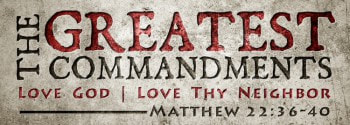

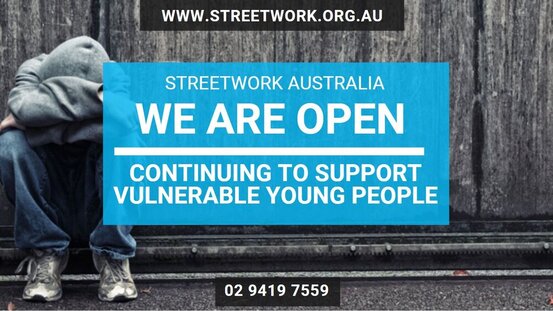
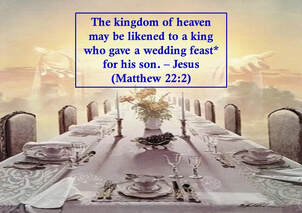
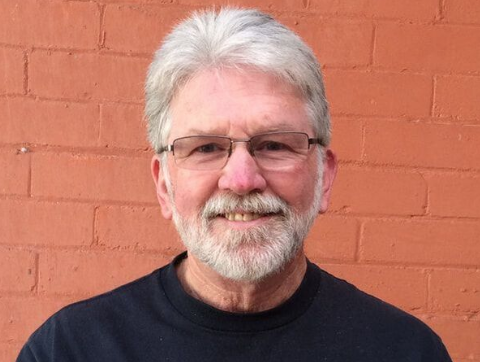
 RSS Feed
RSS Feed